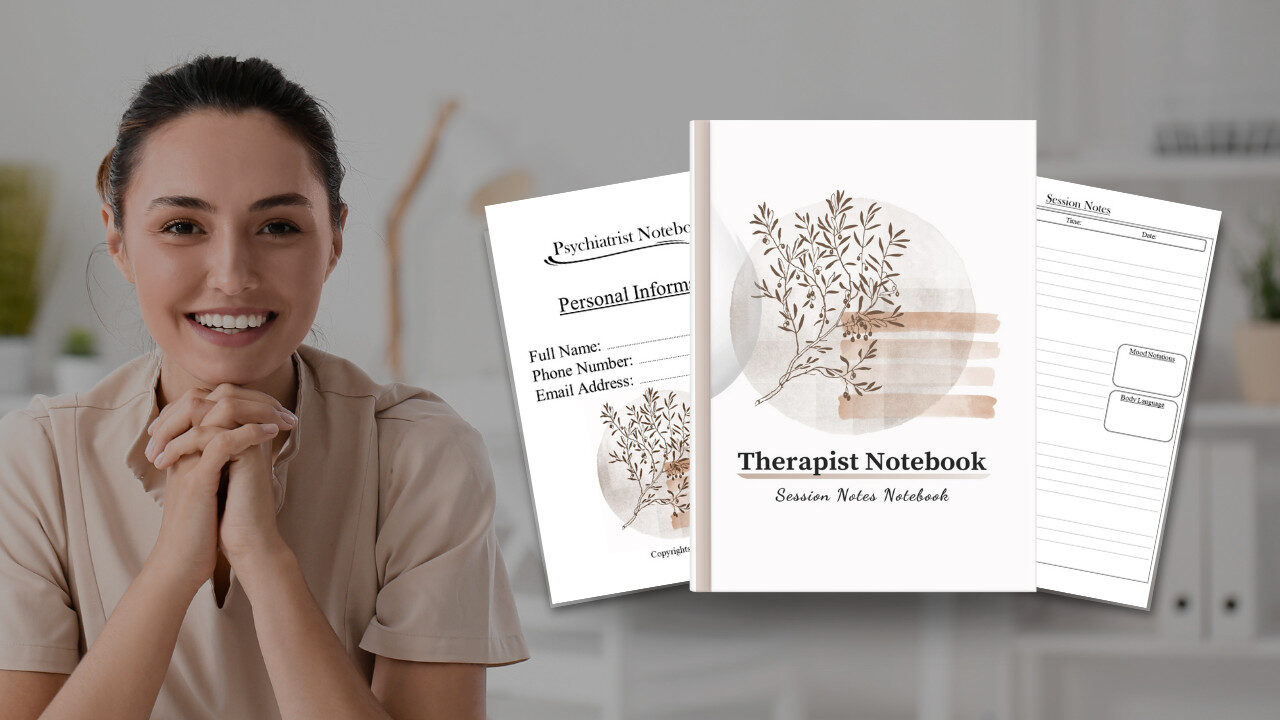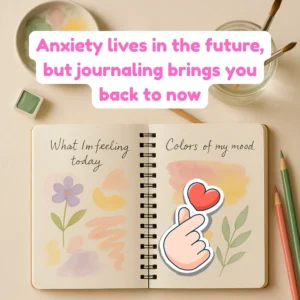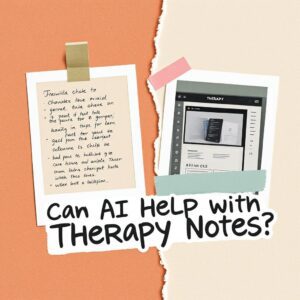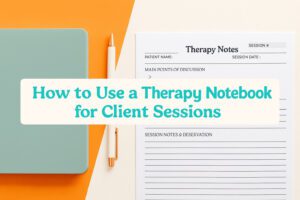As mental health professionals, we’re often juggling a lot more than deep listening. Notes, session planning, scheduling, communication—it all adds up.
Thankfully, AI tools for therapy practice are evolving rapidly, and when used ethically and intentionally, they can support your workflow without replacing the human heart of your work.
Whether you’re in private practice, working with schools, or still in training, here are five AI-powered productivity tools that can make your day smoother—and more focused on your clients.
💬 1. ChatGPT
Best for: Session summaries, psychoeducational content, documentation drafts
ChatGPT is a flexible tool that can help you brainstorm interventions, summarize non-sensitive session notes, and even draft worksheets or client homework ideas.
✍️ Example Use:
“Summarize a CBT session focused on anxiety management for a supervision note.”
Ethical Use Tip: Never input identifying client information. Keep prompts general or hypothetical. Think of it as a brainstorming assistant—not a clinical recordkeeper.
🧾 2. Notion AI
Best for: Organization, to-do lists, therapy content libraries
Notion AI helps you turn scattered ideas into structured plans. Therapists use it to organize session plans, reflections, resources, and self-care trackers. You can even create private journals for client case reflections (always anonymized).
🧠 Bonus: Use templates for treatment goals, homework logs, or resource checklists.
Ethical Use Tip: Turn on encryption and use password-protected pages. Keep personal client details off the platform if you’re unsure about HIPAA compliance.
📢 3. Otter.ai
Best for: Transcribing supervision sessions, lectures, or self-reflection recordings
Otter transcribes spoken content into searchable, editable text—perfect for therapists who record ideas between sessions, take part in group supervision, or need transcripts for training.
🎤 Example: Record yourself summarizing a session or idea, then let Otter turn it into notes.
Ethical Use Tip: Never use Otter to record clients unless you’ve obtained full informed consent, and ensure compliance with local laws and professional guidelines.
✍️ 4. Grammarly
Best for: Cleaning up session notes, reports, or client communication
Grammarly’s AI writing assistant improves clarity, tone, and grammar without compromising your voice. Use it to refine reports, intake forms, or follow-up messages—especially if you’re juggling back-to-back clients.
🗒️ Helpful for: Progress notes, supervision reflections, and even marketing materials.
Ethical Use Tip: Avoid uploading any client notes unless anonymized. Stick to drafts and professional writing.
📅 5. Calendly
Best for: Scheduling sessions and reducing email overload
While not strictly “AI,” Calendly uses automation to eliminate back-and-forth emails. Clients can book sessions in your available slots, get reminders, and even reschedule—all on their own.
⏰ Great for therapists managing private caseloads or coaching clients online.
Ethical Use Tip: Use secure calendar links and clarify policies in your intake process (e.g., cancellation windows, session limits).
🔐 A Note on Ethics & Confidentiality
AI is powerful—but as therapists, our responsibility is to protect our clients’ privacy and dignity above all.
- Never input identifying details into AI tools
- Use encrypted platforms whenever possible
- Follow HIPAA (or equivalent local privacy laws)
- When in doubt, keep your notes offline and secure
🧾 Need a safer, structured option?
Check out our Therapist Session Notebook — designed with ethically sound sections, including SOAP/DAP formats, mood trackers, and follow-up prompts.
And yes—it’s totally offline.

📥 Bonus: Download Our AI Toolkit Worksheet for Therapists
Want to start using AI tools in your practice without overdoing it?
🎁 Download our printable worksheet to map your tools, ethical safeguards, and what actually saves you time.









